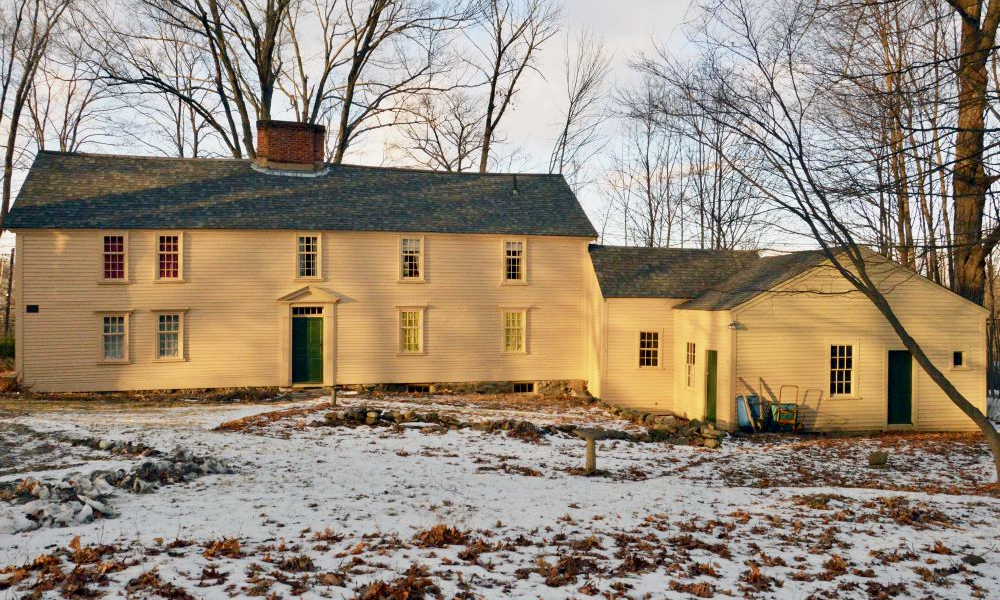The oldest colonial-era structure still standing in Acton, Massachusetts, the Faulkner House was built in 1707 for Ephraim Jones (1679–1710), founder of an early textile business and other mills that formed the nucleus of the present town of Acton. For over two hundred years it was the homestead of six generations of the Faulkner family. They are best remembered for processing woolen cloth at the fulling mill across the road, believed to be one of the earliest attempts in the United States to manufacture woolen cloth on a large scale.
During the Revolutionary War, the Faulkner House was the home to the commander of the West Acton Militia Company, Colonel Francis Faulkner. On April 18, 1775, alarm riders, including Paul Revere, rode from Boston spreading word that the “Regulars march on Concord.” Although Revere was captured in Lincoln, Massachusetts after meeting up with Dr. Samuel Prescott of Concord, Prescott eluded capture and brought the alarm to Concord, and then to Acton.
After informing Captain Joseph Robbins and Captain Isaac Davis, Prescott went to South Acton and the Faulkner House, where Faulkner fired off three shots, the prearranged signal alarm to muster. The West Acton Militia and their families came to the property and from here marched to Concord. As the men assembled, the families of the militia cooked meals for the men over open fires in the yard which were later brought to those fighting on the Battle Road by Francis Faulkner, Jr. who was fourteen years old.
In 1964, Iron Work Farm, a non-profit whose mission is to study the documents and preserve the tangible landmarks connected to the village of South Acton, acquired the property and continues to operate it as a museum. Active stewards, they offer programs that inform the public of the property’s history
Photo courtesy of Iron Work Farm

